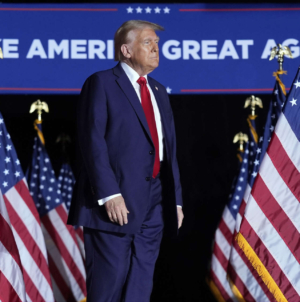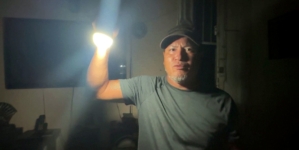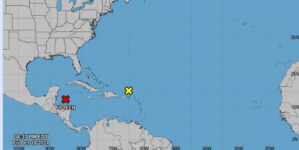-
Trump Shuffles Around Stage for Almost 20 Minutes After Mic Cuts at Rally - 24 mins ago
-
Joel Klatt’s top 5 college football teams in each power conference - 48 mins ago
-
NASCAR Legend Questions Tua Tagovailoa’s Future as Concussion Fears Mount - about 1 hour ago
-
Andy Pages smacks a three-run homer, his second of the game, shrinking Dodgers' deficit vs. Mets - 2 hours ago
-
Kyle Busch Opens Up On Son’s NASCAR Future - 2 hours ago
-
Cuban resident reacts to blackout, calls it ‘total collapse’ - 2 hours ago
-
49ers WR Ricky Pearsall to make his NFL debut 50 days after being shot - 2 hours ago
-
National Hurricane Center Issues Warning on Potential Tropical Storm Nadine - 2 hours ago
-
Cuba’s power grid fails leaving millions without electricity - 3 hours ago
-
WATCH: Daring dog spotted on top of Egypt’s Great Pyramid makes expert descent as onlookers gaze in amazement - 3 hours ago
U.S.-Mexico Border App ‘Helps Drug Cartels Kidnap Migrants’
An official app designed for use by migrants crossing the U.S.-Mexico border has led to kidnappings and extortion by drug cartels, according to a humanitarian report.
The CBP One app, which allows asylum seekers and migrants to schedule appointments with border officials, has exposed thousands of vulnerable people to danger as they wait months on end in Mexico, Amnesty International has said.
Humanitarian groups argue that the app violates international human rights and refugee law.
Of 365 asylum seekers that Amnesty interviewed, one-in-ten reported having been kidnapped. Many, the report said, felt they were targeted because they had CBP One appointments – with the fear of missing a CBP One appointment used by cartels as leverage to secure ransom payments.
Testimony obtained by Amnesty International from a Venezuelan woman seeking asylum in the U.S. described the conditions of waiting in Mexico until her appointment.
“We were kidnapped for three days and then released. We were blindfolded, and they beat us several times. We were taken off the buses several times and were forced to pay. We were sold tickets at double the price. So many things happened to us that make you want to cry. If we don’t get the appointment quickly, we’ll throw ourselves into the river,” she said.
Eric Gay/AP
Pastor Albert Rivera of the Ágape Shelter told EL PAÍS of the dangers migrants face when they travel to the U.S.
“There’s a better chance of getting an appointment at that border crossing because it’s more dangerous,” he said.
Upon arriving in Reynosa, the group was assaulted and kidnapped, and their captors told one of the women to pay their ransom so she wouldn’t lose her CBP One appointment. The families were only set free after they paid the cartel $41,500 in 2023.
Pastor Rivera, who traveled from Tijuana to Reynosa, brought them back. He says that everyone who was kidnapped lost their CBP One appointment and had to restart the process.

Mark Lennihan/AP
Migrants who wish to enter the U.S. legally are required to access the CBP One app to request an appointment at a land port of entry to the country.
The CBP One app is the only avenue, bar a few rare exceptions, to request asylum on the U.S.-Mexico border. To access the app’s core functions, users must confirm that they are in northern or central Mexico.
However, many asylum seekers cannot afford cell phones, while others report having them stolen by gangs. For those that have phones, the devices often don’t have sufficient memory to support the app, they can’t afford the data required to use it, or they don’t have access to Wi-Fi.

Eduardo Verdugo/AP
Ari Sawyer, a US border researcher at Human Rights Watch, said: “The Biden and López Obrador administrations are knowingly exposing migrants to persecution at the hands of cartels that systematically target migrants for kidnapping, extortion, and sexual assault.
“The US and Mexican governments should stop forcing migrants to wait in Mexico and should stop collaborating on rights-abusive immigration policies.”
Ana Piquer, Americas director at Amnesty International, said: “The use of the CBP One application conditions entry and access to asylum on appearing at a port of entry with a prior appointment, which is not feasible for some people.”
“While technological innovations could potentially provide for safe transit and more orderly border processes, programs like CBP One cannot condition and limit the manner in which people seek international protection in the United States,” she added.
Newsweek has approached the CBP for comment.
Uncommon Knowledge
Newsweek is committed to challenging conventional wisdom and finding connections in the search for common ground.
Newsweek is committed to challenging conventional wisdom and finding connections in the search for common ground.
Source link























